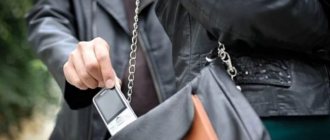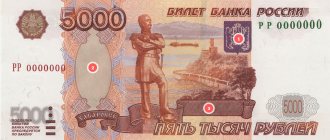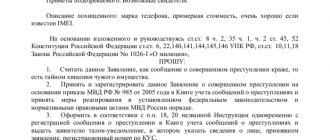Writing off funds from a salary card is always unexpected, unpleasant and causes a storm of indignation. But at this moment it is important not only not to panic, but also to act as quickly as possible to minimize the damage.
Can a salary card be seized? On what basis do the bailiffs write off funds from her? How to get your salary back, and are there ways to protect money from the actions of performers? Taxation and accounting expert Alla Semenova FAN journalist about this .
photo from the personal archive of Alla Semenova /
Reason for arrest
If a salary card is seized, there must be a very compelling reason. All reasons can be divided into two groups: the presence of debts and suspicions that the money received on the card is not a salary, but funds associated with the “laundering” of proceeds obtained by criminal means.
At the same time, if we talk about debts, they can be very diverse:
- Delay in payment of a loan debt (to a bank, microfinance organization) and ignoring a “trip” to the creditor in order to draw up a petition indicating the reason for the impossibility of paying the debt (for example, long-term illness).
- Evasion of child support payments to a child or incompetent parents.
- A disregard for paying for utilities (and the presence of a months-long “tail” in paying for utilities).
- The presence of numerous unpaid traffic police fines (one fine will not make a difference, but a collection of fines can become a good reason for imposing sanctions).
- An outstanding administrative fine (for example, for violation of such articles as “Violation of the peace and quiet of citizens”, “Violation of the rules for the placement and maintenance of burial places”, “Violation of the order and rules for the protection of green spaces”, “Connivance in the presence of minors in gambling establishments”, “Violation procedure for preventing the burning of dry vegetation”, etc.).
- Systematic failure to pay fees for using paid parking.
- Unpaid taxes of individuals (car, real estate).
Who has the right to seize the card?
Do bank employees themselves have the right to seize a salary card? When it comes to debt, this is not their area of expertise. As a bank client, a citizen can always count on confidentiality, but at the same time, the bank, if FSSP employees contact it, cannot hide from him the presence of an open account. Yes, the information is not provided immediately - but after an official request, but the initiator is not the bank, but the FSSP.
If the operation to seize the card is connected with a process that is associated with “money laundering” (or suspicion of such a scam), then the initiation of card blocking can be carried out either by the bank itself (independently) or at the request (resolution) of Rosfinmonitoring.
Do bailiffs have the right to seize a salary card? Yes, bailiffs have the most complete powers to arrest, no matter what the main reason is.
At the same time, it is important to remember the legal subtlety: no matter what reason leads to actions on the part of the bailiffs, it is the funds that are seized, and not the salary card itself. But a common practice is to say “card arrest”.
Try to keep it within five days
When a bank receives a request from a government enforcement agency, it acts quickly: funds can be debited from the card within a few hours. They are sent to a special deposit of a FSSP employee, where they remain for five days, after which they are sent to the claimant.
While the money is on the bailiff’s deposit, there is a possibility of returning it. After receiving the documents, the specialist has the right to return the part to the debtor if it is proven that it is impossible to foreclose on these funds. But if five days have passed and the tranche has been sent to the creditor, you will have to say goodbye to this amount: all of it will be used to repay the debt.
Shouldn't you confuse arrest and card blocking?
Seizing a card and blocking funds on it should not be confused with blocking the card itself. The last option is practiced by the bank when the client entered the PIN code incorrectly 3 times in a row in the payment terminal, blocking.
When a card is blocked in this case, in most cases you receive an SMS, push notification, or email. But this is optional. Some banks, if the client has entered the PIN code incorrectly three times, automatically block the card and do not send any notifications.
Which card should I get so that bailiffs don’t withdraw money?
Get a Tinkoff card. Go to the Tinkoff website and open the Tinkoff Mobile SIM card. We need it so that Tinkoff can make us a virtual credit card. It has a balance in common with the mobile account. According to the law, such an account is not a bank account and cannot be seized.
Also, one of the most reliable ways to keep your money intact is to deposit personal funds on credit cards. The current legislation of the Russian Federation establishes a ban on the seizure of such accounts.
Many banks provide clients with the service of storing personal funds on credit cards in excess of the borrowed limit with interest accrual. The executive service is aware of this. Therefore, the FSSP proposed a number of relevant amendments to the legislation for consideration. But this issue still remains unresolved.
Author of the article
Bailiffs seized a salary card: what to do?
If funds are still seized, the main thing is not to panic and act, taking into account the situation.
So, for example, if during the seizure of the card they do not explain the reason, moreover, you, being the owner of the card, do not understand what is the reason for such actions, you have the right to immediately make a request to the banking institution, and they must provide you with a document based on which the funds are blocked. The papers must indicate the date of seizure and the name of the body that is involved in the procedure.
If you are convinced that this is not a mistake, and there really is a documentary basis, as well as the reason for the arrest, it is important to obtain a certificate from your organization or enterprise. It must indicate that the salary is actually transferred to the seized account. It is important that not all funds are written off, but only those required by law and equal to the amount of the fine and alimony.
There is no need to make such a certificate only if the debt is huge and the funds in the account do not cover it.
If the arrest is imposed legally, you pay off the debts from the card, and then write a statement addressed to the bailiff who issued the decision. The goal is to demand that the arrest be lifted.
It is important to include a proof of employment and a bank statement with your application. It is possible to submit documents in person or through an authorized representative (lawyer). If a salary card is seized without notification, no matter what the reason for the arrest, the actions of the authorities are illegal. You should have a subpoena and papers in your hands at the beginning of the paperwork.
How to receive a salary if the account is seized by bailiffs
To receive your salary in full, you must pay off the debt and wait for the card to be unblocked within one to three days.
When seizing an account, the bailiffs do not know about its intended purpose. In order to be able to receive half of the wages remaining after collection, the debtor needs to find out the reason for the arrest from the bailiff, demanding documents confirming its legality. You should first obtain an account statement from the bank, which will serve as proof that it is a salary account.
Note!
Even if other funds are received there, if wage income predominates, half of the earnings can be released. To do this, it is recommended to take a salary slip from the employer, which will allow you to determine the share of funds for wages in the total number of credits.
It is also worth preparing copies of the pages of the work book. Bailiffs, knowing the place of work, can send a collection order directly to the employer without seizing the card, which will allow them to dispose of half of their earnings.
The collected documents, along with an application to release the account from seizure, must be submitted to the FSSP. The application is written in free form. It indicates the details of the creditor and the debtor, the number of the enforcement proceedings and a request to remove the seizure from the account on the basis that wages are the only source of income.
Note!
Electronic document flow has been established between the FSSP and banks. If the bailiff makes a positive decision, the debtor does not need to take any papers to the bank. If the process is delayed, you can get a decree to lift the seizure from the bailiff and personally present it to bank employees.
How much money can be withheld?
Everyone is concerned about the question of how much money is withheld when bailiffs seize a salary card.
The Law “On Enforcement Proceedings” allows you to block an amount in an account in most cases that is no more than 50% of the debtor’s income.
If we are talking about a debt that is associated with the collection of alimony, compensation for harm to health, compensation for material damage, we are no longer talking about 50%, but about 70%.
But there are options when the retention rate, on the contrary, can be reduced. So the amount of 30% begins to be discussed in situations where there are minor children in the family, and if the child is raised by only one of the parents - up to 25%.
Receiving salary
No less important is the question of how to receive a salary if the bailiffs have seized the account. First of all, we should not forget about the restrictions on wage deductions established by Art. 99 of Law 229-FZ. If you are completely unable to use your salary, you must contact the bailiff with a statement and supporting documents. This could be a certificate from your place of work.
Another option to solve the problem is to receive your salary in cash at the organization’s cash desk. The employee retains this right, and the employer cannot deny him if he receives a corresponding application.
Should the bank notify the client about the seizure of his account?
Many complain: “The salary card was seized without notification.” The problem is indeed very pressing. The process is initiated by bailiffs, and, according to the law, the bank is not obliged to warn clients about the seizure of their accounts, blocking, or collection of money.
The bank receives a decision to enforce that all debit transactions on the accounts are prohibited and the money is “frozen” as soon as the bailiffs seize the salary card.
Only after the bank fulfills the requirements of the bailiff (order, writ of execution), it notifies its client about the transaction performed. For this reason, many disputes often arise. Clients believe that they were deceived and the bank hastened to act. But in fact, legally everything here is absolutely correct.
However, not everything is so pessimistic; since 2015, the Federal Bailiff Service of Russia has made it possible to find out information about ongoing enforcement proceedings via the Internet. Therefore, if a citizen himself understands that he has “shoals”: he does not pay utilities, fines, and is a persistent defaulter of alimony, then he should constantly monitor the resources of the Federal Bailiff Service of Russia.
Errors and misunderstandings
True, sometimes monitoring can reveal unpleasant surprises, revealing not only fair decisions of authorities, but also annoying misunderstandings.
Sometimes a citizen clearly knows his “flaws,” but they try to “hang” debts on him for matters completely unknown to him. This happens if a citizen has not only debts, but also a namesake and mother-in-law, who also “fined himself.” In this case, sometimes the human factor and the haste of authorities come into play.
The fact is that when a case is opened by the FSSP, a search begins for the bank that services the client and the account. And, if a case is already being conducted according to the namesake, the cases can be “mixed” into one “pile”. It’s wild in the age of information technology, but, alas, such situations have arisen more than once. And here the main task of the citizen is to immediately notify the bailiff for his part about the illegal seizure of the account and blocking of the card.
Often, erroneous identification of the debtor occurs in situations where the resolution contains only the debtor’s full name and date of birth. In a multimillion-dollar Russia, where there are many Ivanovs, Petrovs, Zhuravlevs (etc.), the probability theory that the data will coincide is not so small.
Also, confusion may arise if a person has accounts in several banks and several places of work, or if a citizen has already paid debts through the FSSP website, but for some reason
the data has passed. The consequence of this is double recovery. The most unpleasant thing in this situation is that simply canceling the resolution (if the money has been written off) will not solve the problem. But everything can be fixed: the process of returning the money itself begins.
Not only salary...
By the way, it is important to understand that all means can be used to repay the debt. Everything is fine with the accounts on the salary card, it is being “worked out”. There are no funds on it; deposits and loans are used.
At the same time, we are talking not just about the funds that are present in the account “here and now,” but also about potential amounts. So, in the case when the account balance is lower than the amount specified in the court order, the missing amount will be seized at the moment, as, for example, on a salary card, the deposit will arrive later (when the client “places” it on account some money) when the client deposits any funds into the accounts.
Which bank cards are blocked the least often?
Bailiffs will not seize an account that they have not found, because it is impossible to send a request to every Russian bank.
The debtor can open an account in a less well-known bank, where the bailiffs are unlikely to send a request. The smaller the bank, the lower the likelihood that the card will be blocked, because the bailiffs simply will not find it. It all depends on the bailiff’s persistence; if he actively searches, there is a high probability that he will find a card from a lesser-known bank.
We have compiled a list of bank cards that bailiffs pay the least attention to and are less likely to block accounts.
Cashback card from Raiffeisenbank
As practice shows, bailiffs are the least likely to block this card in Russia. There is no need to pay for its release and maintenance. And there are no conditions. Up to 100 thousand rubles. per month, users can transfer money without commission through the instant payment system. And for any purchases made using the card, a refund of 1.5% is charged. If you connect a savings account, interest will be accrued monthly on the remaining amount - 4% per annum.
Ak Bars Bank - Aurum card
A card with cashback for purchases, and the money is paid in gold. This is what distinguishes the Aurum card from the Ak Bars Bank card. Return - 1.25% on any purchases. The account balance at the end of the month is accrued up to 5% per annum and the money is also paid in gold. Users can transfer money without commission to cards of other banks in the amount of up to 100 thousand rubles. per month.
Home Credit with the “Polza” card
If you make purchases at bank partner stores, cashback reaches 30%. You can also choose three categories of your favorite stores and get up to 5% cash back. Interest is accrued monthly on the account balance - 5% per annum. You are allowed to withdraw up to 100 thousand rubles from ATMs per month. no commission. There is no need to pay for card maintenance.
My Life from UBRD
Bailiffs rarely block the My Life card from UBRD. For paying for housing and communal services, users are credited with 5% cashback. Cashback on all other purchases will be 1%. If you connect a savings account, interest on the balance will be accrued monthly - 6.5% per annum. Cash can be withdrawn from ATMs up to 50 thousand rubles. per month.
But even the cards of these banks can be seized by the bailiffs. If the bank receives a request, management is obliged to respond and block the account of even the most loyal customer. Let's list some myths that don't work in real life.
Will an unnamed card be blocked?
The personalized card has the client's first and last name, but the personal card does not. But the bank knows to whom it issued the card. And if you request it from the FSSP, the unnamed card will still be blocked. But if the card is opened in an unpopular bank, to which bailiffs send requests least often, you can use the money. But until the bank receives an order from the FSSP.
Read the article “Can bailiffs seize electronic wallets for debts?”
Deadline for unblocking
The card can be blocked for a certain period of time:
- If the problem is in maintaining the wrong code (and we are talking about blocking, not arrest), then the problem is solved as soon as the client contacts the bank.
- If there is a suspicion of money laundering and the card was blocked by the bank without a resolution from Rosfinmonitoring and bailiffs, then the period for blocking the card is up to 5 working days. During this time, clients must provide documents on the “transparency” of funds. If there are no documents, the operation moves to a new phase, the bank attracts the forces of Rosfinmonitoring.
- If the income is truly honest (and we are really talking about wages), then the problem is solved by the employer providing the initial reasons for transferring money and pay slips.
- If there is a resolution of Rosfinmonitoring, but there was no court, then the blocking period, according to current legislation, is up to 30 days.
- If there is a court decision - for the period until the decision is canceled.
If the income is truly honest (and we are really talking about wages), then the problem is solved by the employer providing the initial reasons for transferring money and pay slips.
If the case is resolved through the court, then there are no specific deadlines; everything is “tied” to the wording specified in the law “On Enforcement Proceedings”. It clearly states that the removal of the arrest from the card is associated with the completion of the execution of the writ of execution by the banking institution. The execution of the writ of execution, in turn, ends most often after the debt has been transferred in full, according to the claimant’s application. Less often, a situation is possible when the bailiff announces the cancellation (termination) of execution.
If the bank withholds money for more than the specified period, then it is possible to demand compensation for a penalty.
What to do, how to challenge?
In each of the cases discussed above regarding the unlawful seizure of a bank card, a citizen must file complaints and petitions with the prosecutor’s office or court. Evidence of the illegality of the seizure of accounts must be attached to the application.
For example, in the case of blocking a bank credit card, a loan agreement is usually attached; and in case of seizure of a salary card, the citizen must provide evidence that his salary was received on this card (at least for the last few months). If a person proves that the actions of the bailiffs were unlawful, the blocking of the specified account, and accordingly the card, will be canceled.
The same should be done if funds were unlawfully written off from a citizen’s accounts to pay off debt obligations. The money written off will be returned to the card in full.
Get a free consultation
How to avoid card seizure?
To avoid card seizure, it is important to always remember the following legal nuances:
- Can a salary card be seized if criminals tried to pay with the card? No, in this case the only place to be is blocking.
- If there are debts, then you must make it clear to the bank that arrest can only be carried out after a court decision; there must be a writ of execution from the bailiffs. If it is not there, blocking and arresting the card is illegal. And there is every reason to defend your rights. If you have paid your debts, there is a complete agreement with the bailiffs, and the arrest on the card cannot be removed, you can safely file a complaint.
- Even if the arrest is based on a court order
Knowing these nuances will allow you not to panic in difficult situations and confidently defend your rights.
The debt is paid, but the card is not unlocked
To remove the encumbrance, the bank needs an official request from the FSSP. According to reviews from the forums, this is 2-3 days. If after the specified time the blocking is not lifted, the debtor sends a notification to the bailiff with a request about the current situation. In the request, the citizen specifies whether the arrest has been lifted by the bank.
You will also need confirmation from the claimant that there are no claims. He is taken to the bank. If after these steps the blocking is not lifted, file a complaint and contact the district court.








